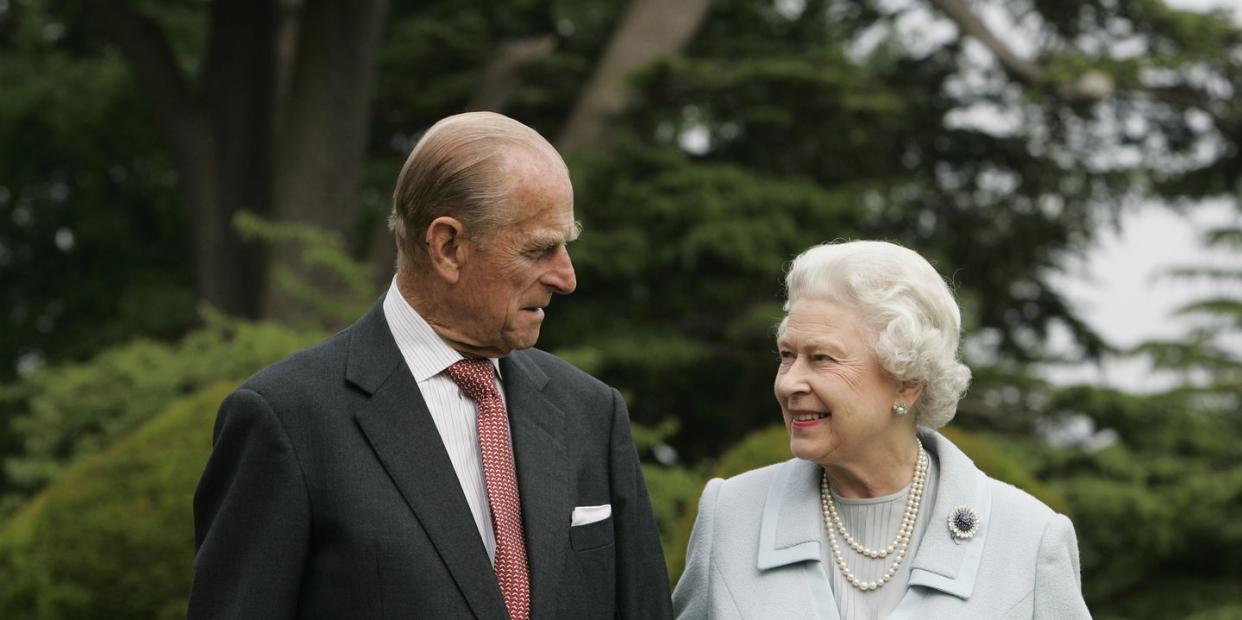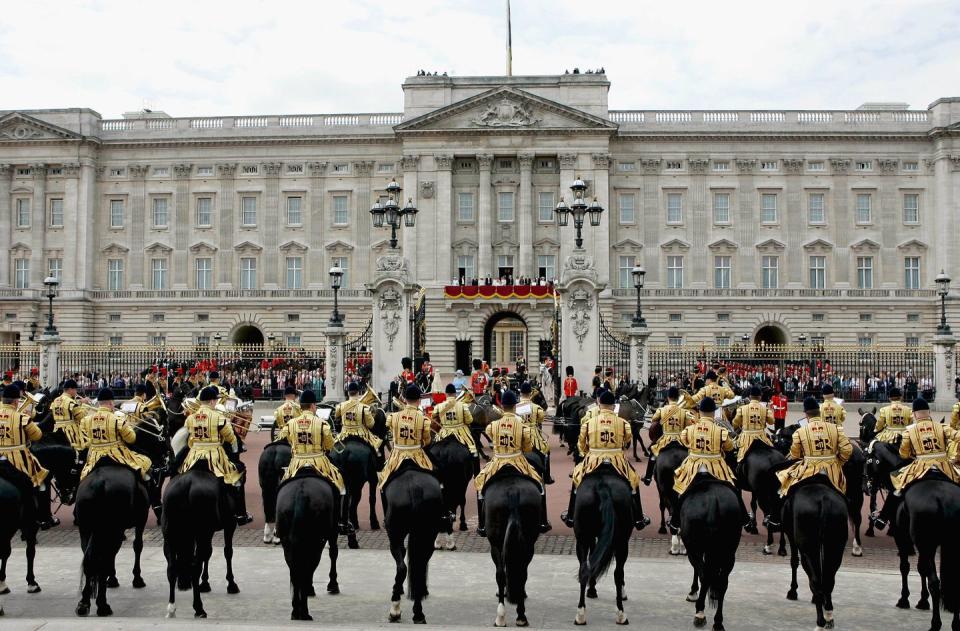How a Rumor About Prince Phillip's Death Went Viral

On Friday, July 20, a rumor that the Queen's husband, Prince Philip, had passed away began to ripple through the internet. According to social media reporter Mike Wendling, it all started with a Facebook post by a blog called Knights Templar International, which Wendling says has "links to the alt/far-right."
From there, the lie spread to Twitter, eventually spawning articles like this one from like this one from Metro about what happens when Prince Philip dies, or this one from the Mirror online about his funeral, which only gave more credence to the story. Eventually, Tweets would claim that an announcement about Prince Philip would be made at 5 p.m. by the BBC.
Buckingham Palace has yet to say anything about the falsehoods publicly, but several outlets are reporting that the Queen is understandably upset and angry over the whole situation. "The Queen is absolutely fuming over this and thinks it's disgraceful," said one anonymous source to the Sun.
This particular rumor is an interesting case study in how quickly a false narrative can spread on social media, but are Twitter rumors the likely way the public would learn that Prince Philip had died? If a senior member of the British royal family passed away, how would the news be made public? Would there be a mysterious announcement from the BBC at a set hour?
In 2001, the Guardian did a deep dive into the BBC's meticulous plan for a death in the royal family. Given the rise of social media over the past 17 years, things could have changed a bit, but generally speaking, this is likely still how things would go down.
Written by author Tim Luckhurst, a former editor of news program at BBC Scotland (in other words, someone who knows what he's talking about), the piece makes it clear that the organization will honor any and all embargoes or timing restrictions set by the royal family.
"The corporation’s official guidelines on the handling of these events contains a sentence in bold capitals and heavily underlined. It explains that BBC news may well be aware that a senior Windsor has died for some time before the palace wishes to confirm the death," writes Luckhurst.
"The bit drummed into the brain of every BBC journalist of assistant editor status or above says: 'THE BBC WILL HONOUR ANY SUCH EMBARGO, REGARDLESS OF WHAT OTHER BROADCASTERS MAY DO.'"
Put another way: The BBC will likely be the first to confirm a royal death, but there's a significant chance that they won't be the first outlet to report on one, given the organization's strict rules about honoring embargoes.

If a senior member of the royal family has died but the Palace does not want to confirm the news, Luckhurst writes that every 15 minutes, music on the radio will be interrupted by an announcement, "This is BBC Radio. A statement is expected from Buckingham Palace shortly about the health of Queen Elizabeth, [or the Prince of Wales or Duke of Edinburgh]. The statement is expected at . . .”
News of an announcement won't start with a rumor from someone's "posh friend" on Twitter, but rather by a hushed BBC announcer making a vague statement.
If a royal dies in the night, it is expected that an announcement wouldn't come until 8 a.m., but otherwise, public confirmation wouldn't be delayed for hours and hours.
In 2002, when Princess Margaret died, for example, the news was shared within two hours of her passing. Per the Telegraph, "there had been a delay to enable the Queen, who was at Buckingham Palace, to telephone the Queen Mother at Sandringham, to break the news."
('You Might Also Like',)